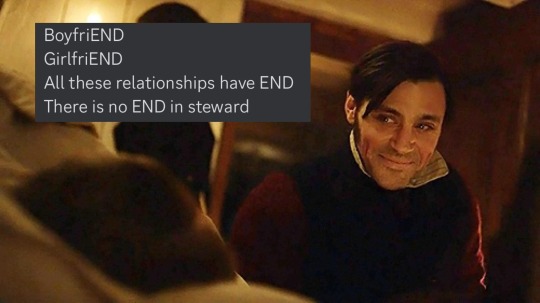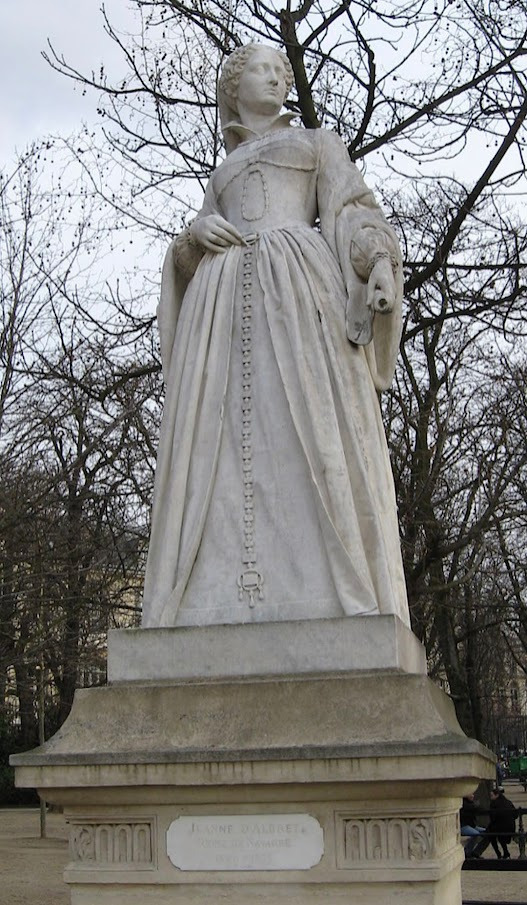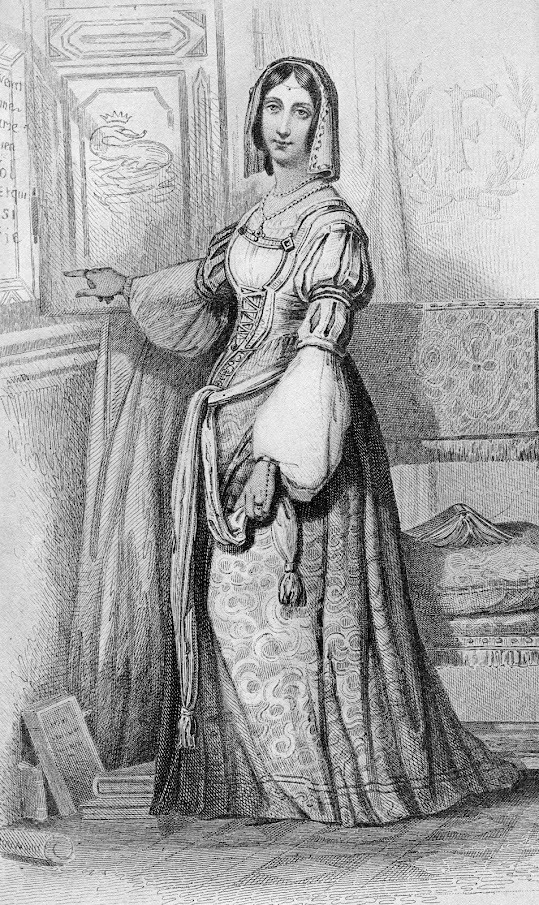#Merciful Result
Explore tagged Tumblr posts
Text
Far Behind the Foresight
What secrets have I let loose Behind the veil of the keys? Was it not a thousand lifetimes ago? I can feel it as if it were now That soul long ago Staring into the future known Unknown Wondering of what would be found If that little truth be hid If that little lie be revealed If that little image find its way Into the minds of others? The shore was not far enough To keep safe the one put away He…
#Burden of Knowing#Destiny#Divine Mercy#Dreams#Foresee#Foresight#Heavenly Revelation#Heavy Burden#Knowledge and Innocence#Life of Another#Meditations#Merciful Result#Prophetic#Seeing#Spiritual Journey#Uncast Stone#Vision Quest
0 notes
Text
no denying how repeatedly linked harrow and mercymorn are (tricky & wretched of john to entrust harrow to the person who also had a nun in their equation, and tag ianthe onto someone connected to franticide) but ortus’s declaration towards the end of the book applies more to mercymorn than to harrow — who do we blame when the one we lost is both the victim and the killer? where does that hate go, can we really stomach it? these words a bullet that grazed but ultimately missed harrow, because she could never allow herself to hate gideon again. so she hates the person hating whom is second nature, self blame as familiar as breathing. but mercymorn had resisted leading that emotion to its source, and she lived beside this grief's river mouth for 10k years, and she held that emotion close, but slightly to the side.
mercymorn, shrill, critical, unlikeable pink haired mercymorn rattles my brain because female rage can sometimes work like a bargain. scraps and empties, bruses and falsehoods, anything to placate, to pacify, to pin that rage in place for a little while longer. was there really no other way? was our mission truly worth it? did you love cristabel?
and there was another way, and the mission was not worth it. and god never liked cristabel. the second time she died, mercymorn was there to pick up the pieces, but the first time god left her body and soul alone, bloody and shattered on the cold floor. did that mercymorn, - not mercymorn the first, but the first mercymorn - find cristabel? did she go into that room where he'd left her because she checked for her everywhere? did she go on to die herself for john with ignorance or radical acceptance?
the unloveable mercymorn dooming all the nine planets because she was an atheist in love with a nun; someone who loved god well enough to die for him twice, and did not love mercymorn well enough to live for her once.
and god did not even like her.
#tlt#the locked tomb#cristabel oct#mercymorn the first#thinking about herrrrr#mercymorn cristabel#john gaius#ig#harrow the ninth#harrow the ninth spoilers#htn#htn spoilers#mercy posting oclock ig !!!#blabbery puffin#there is no point in justice#it's moot it's hollow#but there is a maybe#a sorrowful maybe that the act of killing god was a result of cristabel's soul#marinating so long in mercymorn#maybe at least that they did together
215 notes
·
View notes
Text

Ever wondered how Angela keeps up with Moira around the lab? Wheelies... the answer is wheelies.
#i love these two so much#just crazy scientists doing shenanigans#but the higher ups cant say shot bc i mean... they're getting results#and anyone else is just too afraid to ask#mortal enemies on two sides of a war you say?#la la la can't hear you they're science gfs sharing several labs and unhinged ideas in my heart#my art#moicy#overwatch#moira#mercy overwatch
505 notes
·
View notes
Text
OCs as Patron Saints of... | uquiz | tagged by @lilywatt and @hollywood-is-bleeding

patron saint of horror: you're the patron saint of the dawning moment of realization. the patron saint of comprehension, maybe. the patron saint of understanding. the patron saint of knowing exactly what's going to happen. of seeing clearly. of not being able to look away.

patron saint of relics: patron saint of remembering. patron saint of holding something close. patron saint of holding on for too long. for a saint, a relic is often a part of the body, kept for some physical memento of their holiness. they are all in your hands, now: does it feel like remembrance? does it feel sanctified? are the dust and blood as precious as they're supposed to be?

patron saint of heartbreak: not of comfort. not of condolences. there is a heart and there is a fissure, a fracture, something that starts to splinter and break open. you're the patron saint of the way a heart is rent open. the way it tears itself apart. patron saint of the rift. patron saint of the gash. when they say to "open your heart" to somebody, you are the patron saint of bleeding out.

patron saint of martyrs: the patron saint of those who died to be like you. maybe you died to be like them too: but at the end of it, you weren't like them. patron saint of tragedy. saint of saints. it's you who holds the hands of the holy dead, and you who has to answer: what do they do if they regretted it?

patron saint of houses: but not of homes. only the shells of what keeps us enclosed. houses can be decorated or well-built or crumbling or haunted but only a home can truly be warm; you are the patron saint of that lack.
Tagging, @socially-awkward-skeleton @shellibisshe @cassietrn @strangefable @strafethesesinners
@derelictheretic @purplehairsecretlair @voidika @g0dspeeed @theelderhazelnut
@wrathfulrook @imogenkol @katsigian @killyourrdarlingss @josephslittledeputy
@josephseedismyfather @trench-rot @aceghosts @finding-comfort-in-rain @mkdecimation
@simplegenius042 @neonshrike @elligatorrex @direwombat @carlosoliveiraa
@simonxriley @cloudofbutterflies92 @la-grosse-patate and anyone that would like to do the uquiz 🤍
#Goddamn Sabrina's result is so on point 😭😭#Lou collects people's trinkets; especially if they're taken or killed by Eden's Gate; so in a way she carries remainders of them#Mercedes has broken her fair share of hearts so it feels somewhat fitting#tagged <3#oc: sabrina donovan#oc: eloise “lou” morello#oc: calahan hartley#oc: oakley moore#oc: mercedes “mercy” sibley#wip: in hope of tomorrow#uquiz results#uquiz tag#oc uquiz#character reference#character background#fc5 ocs#far cry 5 oc#fc5 deputy#oc tag#oc tag game#uquizzes
32 notes
·
View notes
Text


for the life of me didn’t have the words to articulate at all why mtc vs bat is very likely, esp since all the divisions are roughly on the same page so here i am trying it again lmao
but both teams experienced an individual change in each member’s life paths, whereas the other divisions more or less experienced a change in team dynamics. juto put it real easy lol, but they’ve come to realise their violence, influence and armed combat aren’t what they need to change their country, when that’s been their fuel this entire time
and for bat, kuukou’s determined to guide humanity out of their cycle of karma, despite previously not expressing that desire, jyushi believes in people again when he became a shut in before bc he became afraid of people, and hitoya is now willing to judge by actions rather than the person that does the action, something that’s always led him to decide to ruin lives
#vee queued to fill the void#it’s still my biggest fear lmao bat vs mtc but i’ve seen the tides swing in jp twt over bat so maybe if it’s a thing#and we will have a certain drb winner this time bat’s chances won’t be abysmal lol#like mtc got fcked over by the 2nd drb and i fully understand why they should win this one lmao#and bat fans showed tf up for their first go but couldn’t keep the momentum#and collectively experienced trauma as a result lmao the votes switch up remains one the most foul events in this franchise#which is why i don’t want them to go up against each other here and instead in the championship round#they should both have a comeback and then make the championship round absolute peak lmao#maybe kr will have mercy and do something else to get us mtc bat championship round lmao
29 notes
·
View notes
Text

my friend and I had a revelation
#my friend and I were discussing him caring for Crozier#this was the result of said convo#also that Jopson 100% would be the friend helping you in the bathroom when you’re throwing up after a night out#Thomas Jopson#francis crozier#the terror amc#the terror#mercy’s musings
198 notes
·
View notes
Text

vote yes if you have finished the entire book.
vote no if you have not finished the entire book.
(faq · submit a book)
37 notes
·
View notes
Text
AU where Zhao took Zuko’s hand at the north pole and was forever indebted to him for his life and was like. Just really really pissed off about it. He becomes his evil treacherous advisor or something.
#personal#atla#avatar the last airbender#Zuko#admiral zhao#I know the point of that scene was to show#zhaos stubbornness and pride resulting in his death#and Zuko’s mercy and kindness even towards a person has recently tried to kill him#and Zhao lacks honor and would definitely try to kill Zuko again given the chance#but idk it could be funny I think
41 notes
·
View notes
Text

vote yes if you have finished the entire book.
vote no if you have not finished the entire book.
(faq · submit a book)
28 notes
·
View notes
Text
Lonestar really got me out here googling "mercy ship" bc they scadoodled one of the main characters off screen with "doing the Lord's work bc orphan photos" and "her mercy ship is in the Solomon Islands" and we all just supposed to know wtf that means ;-;
#they're a charity that travels around doing healthcare and shit btw#surgery included#also teaching it#seem legit based on their wiki so like#cool#but i gotta be honest i wasn't sure i was gonna get results that made sense at first bc ''mercy ship'' also#feels like something a good ol Christian country boy would say in reference to traveling charity work or something#911 lone star#911 lone star spoilers
11 notes
·
View notes
Text
#do you have any idea how hard it was to narrow this down#rip phoenix wright#i couldn’t even go one per franchise mercie needs to be here#anyway if i know my follower base i know what these results will look like#but i do like Other Guys you know.#props to whoever started this it’s fun
16 notes
·
View notes
Text
favorite part of writing fr gotta be cutting out a small part of my soul, putting it into a character and then building a person around it
#daily life with mercy#the amount of therapy I am doing as;fdlkj#ngl I'm really happy i've more or less made peace with being a little self centered#like I'm still good to the people around me#i'm not selfISH#but I do absolutely process everything through my own lens and that's... okay?#idk I was raised to think that considering myself at all was horrendously egotistical and arrogant#and the kind of art I do is inherently kinda self centered?#it's literally me going 'what i have to say is important enough to put out there'#and further - these parts of ME are important enough to put out there#but it really is fun going#'okay you get to be self sacrificing'#'you get to have astounding confience'#'you get a pragmatic view of religion and morality that seems really cold and weird to other people'#'you get results driven personality'#'you get weepy bitch syndome'#'you get the weird sex issues'#and finally#'you get to be a dragon'
7 notes
·
View notes
Text
in a way, Poseidon truly was merciful
you know, considering everything
#he did not play with Ody#or take delight in prolonging their deaths#he was swift and clean about it#choosing to let Ody be the last one he kills for the sole purpose of letting his lesson sink in#Zeus on the other hand#if you aren’t imagining him smiling during Thunder Bringer then you better start#because he’s playing with his food#He knows the end result and yet he is prolonging it for the sole purpose of adding to the suffering#like fuck man#when not being given a choice is more merciful than the choices handed to you#epic the musical#epic thunder saga
15 notes
·
View notes
Text
Clad in Justice and Worth


Written for the Inklings Challenge 2023 (@inklings-challenge). Inspired by the lives of Jeanne d'Albret and Marguerite de Navarre, although numerous liberties have been taken with the history in the name of introducing fantastical elements and telling a good story. The anglicization of names (Jeanne to Joan and Marguerite to Margaret) is meant to reflect the fictionalization of these figures.
The heat was unbearable, and it would grow only hotter as they descended into the lowlands. It was fortunate, Joan decided, that Navarre was a mountain country. It was temperate, even cold there in September. It would be sweltering by the sea.
The greater issue ought to have been the presence of Monluc, who would cut Joan’s party off at the Garonne River most like. The soldiers with whom she traveled were fierce, but Monluc had an entire division at the Garrone. Joan would be a prisoner of war if Providence did not see her through. Henry, perhaps, might suffer worse. He might be married to a Catholic princess.
Yet Joan was accustomed to peril. She had cut her teeth on it. Her first act as queen, some twenty years ago, had been to orchestrate the defense of her kingdom, and she was accustomed to slipping through nets and past assassins. The same could not be said of the infernal heat, which assaulted her without respite. Joan wore sensible travel clothing, but the layers of her skirts were always heavy with sweat. A perpetual tightness sat in her chest, the remnant of an old bout with consumption, and however much she coughed it would not leave.
All the same, it would not do to seem less than strong, so she hid the coughing whenever she could. The hovering of her aides was an irritant and she often wished she could just dismiss them all.
“How fare you in the heat, Majesty?”
“I have war in my gut, Clemont,” Joan snapped. “Worry not for me. If you must pester someone, pester Henry.”
He nodded, chastened. “A messenger is here from Navarre. Sent, I suspect, to induce you to return hence.”
“I would not listen to his birdcalls.”
“Young Henry said much the same.”
Joan stuffed down her irritation that Clemont had gone to Henry before he’d come to her. She was still queen, even if her son was rapidly nearing his majority. “Tell him that if the Huguenot leaders are to be plucked, I think it better that we all go together. Tell him that I would rather my son and I stand with our brothers than await soldiers and assassins in our little kingdom.”
Her aide gave a stiff nod. “At once, your Majesty.”
She would breathe easier when they reached the host at La Rochelle. Yet then, there would be more and greater work to do. There would be war, and Joan would be at the head of it.
*
When she awoke in the night, Joan knew at once that something was awry. It was cool. Gone was the blistering heat that had plagued them all day. Perhaps one of the kidnapping plots had finally succeeded.
Certainly, it seemed that way. She was in a cell, cool and dank and no more than six paces square. And yet—how strange! —the door was open.
Rising unsteadily to her feet, Joan crept towards the shaft of moonlight that fell through it. She glanced about for guards, but saw only a single prisoner in dirty clothes standing just beyond the threshold. He was blinking rapidly, as though the very existence of light bewildered him. Then, as Joan watched, he crept forward towards the gate of the jailhouse and out into the free air beyond. Joan listened for a long moment, trying to hear if there was any commotion at the prisoner’s emergence. When she could perceive none, she followed him out into the cool night air.
A lantern blazed. “Come quickly,” a voice hissed. “Our friend the Princess is waiting.”
The prisoner answered in a voice too quiet for Joan to hear. Then, quite suddenly, she heard his companion say, “Who is it that there behind you?”
The prisoner turned round, and Joan’s fingers itched towards her hidden knife. But much to her astonishment, he exclaimed, “Why, it is the lady herself! Margaret!”
But Joan had no opportunity to reply. Voices sounded outside her pavilion and she awoke to the oppressive heat of the day before. Coughing hard, Joan rolled ungracefully from her bed and tried to put away the grasping tendrils of her dream.
“The river is dry, Majesty” her attendant informed her as soon as she emerged from her pavilion, arrayed once again in sensible riding clothes. “The heat has devoured it. We can bypass Monluc without trouble, I deem.”
“Well then,” Joan replied, stifling another cough. “Glory to God for the heat.”
*
They did indeed pass Monluc the next day, within three fingers of his nose. Joan celebrated with Henry and the rest, yet all the while her mind was half taken up with her dream from the night before. Never, in all her life, had her mind conjured so vivid a sensory illusion. It had really felt cool in that jail cell, and the moonlight beyond it had been silver and true. Stranger still, the prisoner and his accomplice had called Joan by her mother’s name.
Joan had known her mother only a little. At the age of five, she had been detained at the French court while her mother returned to Navarre. This was largely on account of her mother’s religious convictions. Margaret of Angoulême had meddled too closely with Protestantism, so her brother the king had seen fit to deprive her of her daughter and raise her a Catholic princess.
His successor had likewise stolen Henry from Joan, for despite the king’s best efforts she was as Protestant as her mother. Yet unlike Margaret, Joan had gone back for her child. Two years ago, she had secretly swept Henry away from Paris on horseback. She’d galloped the horses nearly to death, but she’d gotten him to the armed force waiting at the border, and then at last home to Navarre. Sometimes, Joan wondered why her own mother had not gone to such lengths to rescue her. But Margaret’s best weapons had been tears, it was said, and tears could not do the work of sharp swords.
The Navarre party arrived at La Rochelle just before dusk on the twenty-eighth of September. The heat had faltered a little, to everyone’s great relief, but the air by the sea was still heavy with moisture. The tightness in Joan’s chest persisted.
“There will be much celebration now that you have come, Your Majesty,” said the boy seeing to her accommodations. “There’s talk of giving you the key to the city, and more besides.”
Sure enough, Joan was greeted with applause when she entered the Huguenot council. “I and my son are here to promote the success of our great cause or to share in its disaster,” she said when the council quieted. “I have been reproached for leaving my lands open to invasion by Spain, but I put my confidence in God who will not suffer a hair of our heads to perish. How could I stay while my fellow believers were being massacred? To let a man drown is to commit murder.”
*
Sometimes it seemed that the men only played at war. The Duke of Conde, who led the Huguenot forces, treated it as a game of chivalry between gentlemen. Others, like Monluc, regarded it as a business; the mercenaries he hired robbed and raped and brutalized, and though be bemoaned the cruelty he did nothing to curtail it.
There were sixty-thousand refugees pouring into the city. Joan was not playing at war. When she rose in the mornings, she put poultices on her chest, then went to her office after breaking her fast. There was much to do. She administered the city, attended councils of war, and advised the synod. In addition, she was still queen of Navarre, and was required to govern her own kingdom from afar.
In the afternoons, she often met with Beza to discuss matters of the church, or else with Conde, to discuss military matters. Joan worked on the city’s fortifications, and in the evenings she would ride out to observe them. Henry often joined her on these rides; he was learning the art of war, and he seemed to have a knack for it.
“A knack is not sufficient,” Joan told him. “Anyone can learn to fortify a port. I have learned, and I am a woman.”
“I know it is not sufficient,” the boy replied. “I must commit myself entirely to the cause of our people, and of Our Lord. Is that not what you were going to tell me?”
“Ah, Henry, you know me too well. I am glad of it. I am glad to see you bear with strength the great and terrible charge which sits upon your shoulders.”
“How can I help being strong? I have you for a mother.”
At night, Joan fell into bed too exhausted for dreams.
*
Yet one night, she woke once again to find her chest loose and her breathing comfortable. She stood in a hallway which she recognized at once. She was at the Château de Fontainebleau, the place of her birth, just beyond the door to the king’s private chambers.
“Oh please, Francis, please. You cannot really mean to send him to the stake!” The voice on the other side of the door was female, and it did not belong to the queen.
A heavy sigh answered it. “I mean to do just that, ma mignonne. He is a damned heretic, and a rabble-rouser besides. Now, sister, don’t cry. If there’s one thing I cannot bear, it is your weeping.”
At those words, a surge of giddiness, like lightning, came over Joan’s whole body. It was her own mother speaking to the king. She was but a few steps away and they were separated only by a single wooden door.
“He is my friend, Francis. Do you say I should not weep for my friends?”
A loud harumph. “A strange thing, Margaret. Your own companions told me that you have never met the man.”
“Does such a triviality preclude friendship? He is my brother in Our Lord.”
“And I am your true brother, and your king besides.”
“And as you are my brother—” here, Margaret’s voice cracked with overburdening emotion. She was crying again, Joan was certain. “As you are my brother, you must grant me this boon. Do not harm those I love, Francis.”
The king did not respond, so Joan drew nearer to the door. A minute later, she leapt backwards when it opened. There stood her mother, not old and sick as Joan had last seen her twenty years before, but younger even than Joan herself.
“If you’ve time to stand about listening at doors, then you are not otherwise employed,” Margaret said, wiping her tears from her face with the back of her hand. “I am going to visit a friend. You shall accompany me.”
Looking down at herself, Joan realized that her mother must have mistaken her for one of Fountainbleu’s many ladies-in-waiting. She was in her night clothes, which was really a simple day dress such as a woman might wear to a provincial market. Joan did not sleep in anything which would hinder her from acting immediately, should the city be attacked in the middle of the night.
“As you wish, Majesty,” Joan replied with a curtsey. Margaret raised an eyebrow, and instantly Joan corrected herself: “Your Highness.”
Margaret stopped at her own rooms to wrap herself in a plain, hooded cloak. “What is your name?” she asked.
“Joan, your Highness.”
“Well, Joan. As penance for eavesdropping, you shall keep your own counsel with regards to our errand. Is that clear?”
“Yes, your Highness,” Joan replied stiffly. Any fool could see what friend Margaret intended to visit, and Joan wished she could think of a way to cut through the pretense.
When Margaret arrived at the jail with Joan in tow, the warden greeted her almost like a friend. “You are here to see the heretic, Princess? Shall I fetch you a chair?”
“Yes, Phillip. And a lantern, if you would.”
The cell was nearly identical to the one which Joan had dreamed on the road to La Rochelle. Inside sat a man with sparse gray hair covering his chin. Margaret’s chair was placed just outside the cell, but she brushed past it. She handed the lantern to Joan and knelt down in the cell beside the prisoner.
“I was told that I had a secret friend in the court,” he said. “I see now that she is an angel.”
“No angel, monsieur Faber. I am Margaret, and this is my lady, Joan. I have come to see to your welfare, as best I am able.”
Now, Margaret’s hood fell back, and all at once she looked every inch the Princess of France. Yet her voice was small and choked when she said, “Will you do me the honor of praying with me?”
Margaret was already on her knees, but she lowered herself further. She rested one hand lightly on Faber’s knee, and after a moment, he took it. Her eyes fluttered closed. In the dim light, Joan thought she saw tears starting down her mother’s cheek.
When she woke in the morning, Joan could still remember her mother’s face. There were tears in her hazelnut eyes, and a weeping quiver in her voice.
*
Winter came, and Joan’s coughing grew worse. There was blood in it now, and occasionally bits of feathery flesh that got caught in her throat and made her gag. She hid it in her handkerchief.
“Winter battles are ugly,” Conde remarked one morning as Christmas was drawing near. “If the enemy is anything like gentlemen, they will not attack until spring. And yet, I think, we must stand at readiness.”
“By all means,” Joan replied. “Anything less than readiness would be negligence.”
Conde chuckled, not unkindly. “For all your strength and skill, madame, it is obvious that you were not bred for command. No force can be always at readiness. It would kill the men as surely as the sword. ‘Tis not negligence to celebrate the birth of Our Lord, for instance.”
Joan nodded curtly, but did not reply.
As the new year began, the city was increasingly on edge. There was frequent unrest among the refugees, and the soldiers Joan met when she rode the fortifications nearly always remarked that an attack would come soon.
Then, as February melted into March, word came from Admiral Coligny that his position along the Guirlande Stream had been compromised. The Catholic vanguard was swift approaching, and more Huguenot forces were needed. By the time word reached Joan in the form of a breathless young page outside her office, Conde was already assembling the cavalry. Joan made for the Navarre quarter at once, as fast as her lungs and her skirts would let her.
The battle was an unmitigated disaster. The Huguenots arrived late, and in insufficient numbers. Their horses were scattered and their infantry routed, and the bulk of their force was forced back to Cognac to regroup. As wounded came pouring in, Joan went to the surgical tents to make herself useful.
The commander La Noue’s left arm had been shattered and required amputation. Steeling herself, Joan thought of Margaret’s tearstained cheeks as she knelt beside Faber. “Commander La Noue,” she murmured, “Would it comfort you if I held your other hand?”
“That it would, Your Majesty,” the commander replied. So, as the surgeon brandished his saw, Joan gripped the commander’s hand tight and began to pray. She let go only once, to cover her mouth as she hacked blood into her palm. It blended in easily with the carnage of the field hospital.
Yet it was not till after the battle was over that Joan learned the worst of it. “His Grace, General Conde is dead,” her captain told her in her tent that evening. “He was unseated in the battle. They took him captive, and then they shot him. Unarmed and under guard! Why, as I speak these words, they are parading his corpse through the streets of Jarnac.”
“So much for chivalry,” murmured Joan, trying to ignore the memories of Conde’s pleasant face chuckling, calling her skilled and strong.
“We will need to find another Prince of the Blood to champion our cause,” her captain continued. “Else the army will crumble. If there’s to be any hope for Protestantism in France, we had better produce one with haste. Admiral Coligny will not serve. He’s tried to rally the men, to no avail. In fact, he has bid me request that you make an attempt on the morn.”
“Henry will lead.”
“Henry? Why, he’s only a boy!”
Joan shook her head. “He is nearly a man, Captain, and he’s a keen knack for military matters. He trained with Conde himself, and he saw to the fortification of La Rochelle at my side. He is strong, which matters most of all. If it’s a Prince of the Blood the army requires, Henry will serve.”
“As you say, Majesty,” said her captain with a bow. “But it’s not me you will have to convince.”
*
Joan settled in for a sleepless night. Her captain was correct that she would need to persuade the Huguenot forces well, if they were to swear themselves to Henry. So, she would speak. Joan would rally their courage, and then she would present them with her son and see if they would follow him.
Page after page she wrote, none of it any good. Eloquence alone would not suffice; Joan’s words had to burn in men’s chests. She needed such words as she had never spoken before, and she needed them by morning.
By three o’clock, Joan’s pages were painted with blood. Her lungs were tearing themselves to shreds in her chest, and the proof was there on the paper beside all her insufficient words. She almost hated herself then. Now, when circumstance required of her greater strength than ever before, all Joan’s frame was weakness and frailty.
An hour later, she fell asleep.
When Joan’s eyes fluttered open, she knew at once where she was. Why, these were her own rooms at home in Navarre! Sunlight flooded through her own open windows and drew ladders of light across Joan’s very own floor. Her bed sat in the corner, curtains open. Her dressing room and closet were just there, and her own writing desk—
There was a figure at Joan’s writing desk. Margaret. She looked up.
“My Joan,” she said. It started as a sigh, but it turned into a sob by the end. “My very own Joan, all grown up. How tired you look.”
The words seemed larger than themselves somehow. They were Truth and Beauty in capital letters, illuminated red and gold. Something in Joan’s chest seized; something other than her lungs.
“How do you know me, mother?”
“How could I not? I have been parted from you of late, yet your face is more precious to me than all the kingdoms of the earth.”
“Oh.” And then, because she could not think of anything else to say, Joan asked, “What were you writing, before I came in?���’
“Poetry.” Joan made a noise in her throat. “You disapprove?” asked her mother.
“No, not at all. Would that I had time for such sweet pursuits. I have worn myself out this night writing a war speech. It cannot be poetry, mother. It must be wine. It must–” then, without preamble, Joan collapsed into a fit of coughing. At once, her mother was on her feet, handkerchief in hand. She pressed it to Joan’s mouth, all the while rubbing circles on her back as she coughed and gagged. When the handkerchief came away at last, it was stained red.
“What a courageous woman you are,” Margaret whispered into her hair. “Words like wine for the soldiers, and yourself spitting blood. Will you wear pearls or armor when you address them?”
“I will address them on horseback in the field,” answered Joan with a rasp. “I would have them see my strength.”
Her mother’s dark eyes flickered then. Margaret looked at her daughter, come miraculously home to her against the will of the king and the very flow of time itself. She was not a large woman, but she held herself well. She stood brave and tall, though no one had asked it of her.
Her own dear daughter did not have time for poetry. Margaret regretted that small fact so much that it came welling up in her eyes. “And what of your weakness, child? Will you let anyone see that?”
Joan reached out and caught her mother’s tears. Her fingertips were harder than Margaret’s were. They scratched across the sensitive skin below her eyes.
“Did I not meet you like this once before? You are the same Joan who came with me to the jail in Paris once. I did not know you then. I had not yet borne you.”
“Yes, the very same. We visited a Monsieur Faber, I believe. What became of that poor man?”
Margaret sighed. She crossed back over to the desk to fall back into her seat, and in a smaller voice she said, “My brother released him, for a time. And then, when I was next absent from Paris, he was arrested again and sent to the stake before I could return.”
“I saw you save another man, once. I do not know his name. How many prisoners did you save, mother?”
“Many. Not near enough. Not as many as those with whom I wept by lantern light.”
“Did the weeping do any good, I wonder.”
“Those who lived were saved by weeping. Those who died may have been comforted by it. It was the only thing I could give them, and so I must believe that Our Lord made good use of it.”
Joan shook her head. She almost wanted to cry too, then. The feeling surprised her. Joan detested crying.
“All those men freed from prison, yet you never came for me. Why?”
“Francis was determined. A choice between following Christ and keeping you near was no choice at all, though it broke my heart to make it.”
If Joan shut her eyes, she could still remember the terror of the night she had rescued Henry. “You could have come with soldiers. You could have stolen me away in the night.”
Margaret did not answer. The tears came faster now and her fair, queenly skin blossomed red. So many years would pass between the dear little girl she’d left in Paris and the stalwart woman now before her. She did not have time for poetry, but if Margaret had been allowed to keep her that would have been different. Joan should have had every poem under the sun.
“Will you read it?” she asked, taking the parchment from her desk and pressing it into her daughter’s hands. “Will you grant me that boon?”
Slowly, almost numbly, Joan nodded. To Margaret’s surprise, she read aloud.
“God has predestined His own
That they should be sons and heirs.
Drawn by gentle constraint
A zeal consuming is theirs.
They shall inherit the earth
Clad in justice and worth.”
“Clad in justice and worth,” she repeated, handing back the parchment. “It’s a good poem.”
“It isn’t finished,” replied her mother.
Joan laughed. “Neither is my speech. It must be almost morning now.”
As loving arms closed around her again, Joan wished to God that she could remain in Navarre with her mother. She knew that she and Margaret did not share a heart: her mother was tender like Joan could never be. Yet all the same, she wanted to believe that they had been forged by the same Christian hope and conviction. She wanted to believe that she, Joan, could free the prisoners too.
She shut her eyes against her mother’s shoulder. When she opened them, she was back in her tent, with morning sun streaming in.
*
She came before the army mounted on a horse with Henry beside her. Her words were like wine when she spoke.
“When I, the queen, hope still, is it for you to fear? Because Conde is dead, is all therefore lost? Does our cause cease to be just and holy? No; God, who has already rescued you from perils innumerable, has raised up brothers-in-arms to succeed Conde.
Soldiers, I offer you everything in my power to bestow–my dominions, my treasures, my life, and that which is dearer to me than all, my son. I make here a solemn oath before you all, and you know me too well to doubt my word: I swear to defend to my last sigh the holy cause which now unites us, which is that of honor and truth.”
When she finished speaking, Joan coughed red into her hands. There was quiet for a long moment, and then a loud hurrah! went up along the lines. Joan looked out at the soldiers, and from the front she saw her mother standing there, with tears in her eyes.
#inklingschallenge#inklings challenge#team tolkien#genre: time travel#theme: visiting the imprisoned#with a tiny little hint of#theme: visiting the sick#story: complete#so i like to read about the reformation in october when i can#when the teams were announced i was burning through a book on the women of the reformation and these two really reached out and grabbed me#Jeanne in particular. i was like 'it is so insane that this person is not more widely known.'#Protestantism has its very own badass Jeanne/Joan. as far as i'm concerned she should be as famous as Joan of Arc#so that was the basis for this story#somewhere along the line it evolved into a study on different kinds of feminine power#and also illness worked itself in there. go me#anyway. hopefully my catholic friends will give me a shot here in spite of the protestantism inherant in the premise#i didn't necessarily mean to go with something this strongly protestant as a result of the Catholic works of mercy themes#but i'm rather tickled that it worked out that way#on the other hand i know that i have people following me that know way more about the French Wars of Religion and the Huguenots than i do#hopefully there's enough verisimilitude here that it won't irritate you when i inevitably get things wrong#i think that covers all my bases#i am still not 100% content with how this turned out but i am at least happy enough to post it#and get in right under the wire. it's a couple hours before midnight still in my time zone#pontifications and creations#leah stories#i enjoy being a girl#the unquenchable fire
51 notes
·
View notes
Text
OCs as Archetypes | uquiz | Tagged by @rhettsabbott @g0dspeeed @voidika and @imogenkol

Lover: You are so full of love and light; you value the people around you more than anything. I hope you find what you're looking for. I hope you find the right people at the right time and that your world is full of love; I hope your love is returned to you, properly, and that you don't ever get too hurt (because you're prone to it, aren't you?). You deserve that, you deserve the world. I wish you the best. Also, I'm serious, read the last lines of the minecraft end poem if you haven't, I think you'll like it.

Villain: I know some of them pity you. They think you must be exhausted carrying around that much resentment, that much anger. I know what you did, though, what it must have taken to get here. You had no fall from grace; you walked into the pit, eyes open, feet planted firmly on the staircase. And so be it. It's an effective lifestyle, if you're willing to commit to it. I'm sure you'll get where you're going. And then they'll see, they'll all see--because that's what's important, isn't it?

Hero: The hero in a relative sense, anyhow. You have your moments of weakness, but you're the best one for the job. Or the only one that wants it. Golden child, high aptitude, natural leader, whatever it may be--you've grown used to being favored, to being the best. You walk a fine line and you'll lose yourself to insanity if you aren't careful. You know that, though. It began to dawn on you a long time ago what you've gotten yourself into.

Ghost: You seem to think you're the villain. I don't think that you are. I don't know why you'd want to be, either. There is always love and light if you look for it and I think you would enjoy that, if you would let yourself be a part of that world instead of haunting it from beyond the glass. It really isn't much fun to be a villain, but I think you know that. It's easier, sure, than trying to be a good, happy person, but it isn't as much fun. The cool aesthetics only make up for so much.

Starlet: Deeply, you understand beauty--what it is to possess it, to surround yourself in it, to be consumed by it. It's better, isn't it? To create your own world full of lights and glamour than to live in reality with the rest of us? It's like living in a movie. You win, by the way. This is your movie, you're our star. Be careful, though, getting too far from reality. It gets more and more difficult to come back, and you've got to, at some point.
Tagging, @socially-awkward-skeleton @strangefable @strafethesesinners @aceghosts @raresvtm
@josephseedismyfather @josephslittledeputy @carlosoliveiraa @gearvmac @thesingularityseries
@killyourrdarlingss @shellibisshe @direwombat @cassietrn @finding-comfort-in-rain
@purplehairsecretlair @wrathfulrook @trench-rot @la-grosse-patate @kyberinfinitygems
@simonxriley @captastra @theelderhazelnut @simplegenius042 @icecutioner
@tommyarashikage @cloudofbutterflies92 @dumbassdep @justasmolbard and anyone that would like to do the tag <3
#quietly (and excitedly) pointing at a certain header and fresh face <3#sabrina's result having hope mentioned so frequently <3#lou's hits HARD. she chose the life and is basically on a (destructive) path where she has nothing to lose aside from her own life#she's happy to be here i promise but fair warning for danger of biting (*pun very much intended*)#the rest of the gang is also pretty much read to filth (Cal knows he's in for a bumpy ride; Oaks avoids people and love...) :D#tagged <3#oc: sabrina donovan#oc: eloise “lou” morello#oc: calahan hartley#oc: oakley moore#oc: mercedes “mercy” sibley#uquiz#uquiz tag#oc uquiz#character reference#character analysis#far cry 5 oc#fc5 deputy#wip: in hope of tomorrow#far cry 5 deputy#fc5 ocs#uquiz results#oc tag game#character background#myedits
40 notes
·
View notes
Text
something something may the fourth something




I had a billion characters in SWTOR, but my most recent trip back to visit (a few years ago, mind you), I decided to make Sith Inquisitor Mercuriel (although MERCURIEL as a name was TAKEN how fucking dare people).

He was perfect and I will love him forever.
#swtor#mercuriel#he only ever let himself be Dark 1 because he didn't like what it did to his complexion otherwise#so he would occasionally balance out his force lightning murders with nonsensical mercy#i loved that occasionally he would get called out for being an extra weird sith as a result
13 notes
·
View notes